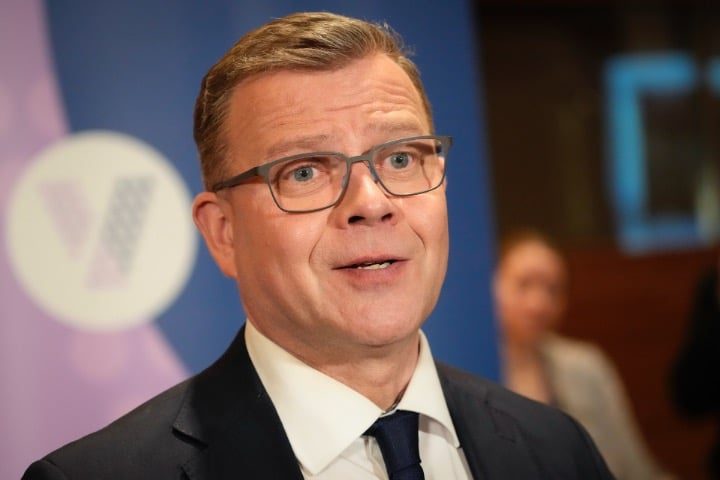
After weeks of what were, at times, fractious negotiations, Finland’s new leaders have announced that they have come to terms on the formation of a new government. The National Coalition Party (NCP), also known to Finns as Kokoomus, emerged from April’s general election with the most parliamentary seats (48).
The National Coalition will lead a government joined by the second-place finisher, the Finns Party, which secured 46 seats; the Swedish People’s Party with nine seats; and the Christian Democrats with 5 seats. In Finland, 101 seats are needed for a majority, thus the ruling coalition with 108 seats will control the government.
NCP leader Petteri Orpo, who will be the nation’s new prime minister, announced the agreement on Thursday.
“I am proud of the good program and the result of the negotiations. All the issues have been resolved,” Orpo said of the new government.
“The coalition’s parliamentary group and party council have decided in their joint meeting to participate in government responsibility. We appointed competent and excellent ministers to implement the government’s program. Building a strong and caring Finland can begin,” Orpo elaborated in a tweet.
The new government has already named most of its Cabinet members. Observers are referring to the new Cabinet as the most right-wing in the nation’s recent history.
According to Euronews, “This is the most right-wing Finnish government in modern times. Kokoomus has a vocal EU-sceptic and immigrant-sceptic wing. The Christian Democrats’ best-known MP is anti-abortion, and became something of a cause celebre among the US Christian right when she carried a bible into court to face charges of being anti-LGBT.”
That “best-known MP” being referenced is Päivi Räsänen, who faced a trial for “hate speech” in 2022 for speaking in defense of traditional and biblical teachings on homosexuality. Those charges were dismissed over free-speech concerns earlier this year.
Finland watchers expect a new government in which government spending will be reduced and immigration will be curtailed.
“Before the elections, we promised to put the country’s affairs in order. We promised an adjustment of €6 billion and 100,000 new jobs,” says Kokoomus MP Sinuhe Wallinheimo.
Onlookers expect the new government to take a hard line on immigration, with a much stricter asylum policy, time limits on government protection of asylum seekers, mandatory integration policies, and a reduction to the number of refugees the nation will take in.
Climate alarmists are worried that climate-change mitigation policies will be adversely affected, with the new coalition looking at reducing prices for fossil fuels and rejecting calls to reduce the number of vehicles on Finland’s roads. Said Ville Niinistö, an MP for Finland’s Green Party:
The new government is very much leaning towards the conservative right and takes Finland backwards when it comes to climate action and biodiversity protection. The financing for nature protection is reduced by one-third from the previous Marin government and therefore we have no tools to protect our forests and waterways in line with global commitments to stop biodiversity loss.
Among the “anti-climate” actions expected are a €100 million reduction in taxes on gasoline and a €50 million reduction in vehicle taxes.
The new government represents a substantial tilt to the right for Finland, which had been ruled by a left-wing coalition led by the Social Democratic Party (SDP). SDP finished third in the most recent elections.
The right-wing victory in Finland also represents a growing anti-European Union sentiment in Europe. Giorgia Meloni’s ascension to prime minister of Italy in September of last year was the first inkling that anti-EU forces in Europe were rising.
Right-of-center parties have also carried the day in Sweden, a nation that has been dominated by left-wing, pro-EU parties for decades.
And now, polls show Spain’s upcoming July snap elections could be heavily influenced by the right-wing Vox Party. While Vox is not expected to gain a governing majority, a strong showing could allow them to serve in the role of “kingmaker” for the next prime minister, and have substantial impact on national policies going forward.
Of course it remains to be seen whether the EU will recalibrate their positions as individual nations appear to rebuke their notions of superstate control. But having already lost the United Kingdom to Brexit, can they risk the departure of more nations over their unwieldy and draconian policies?




